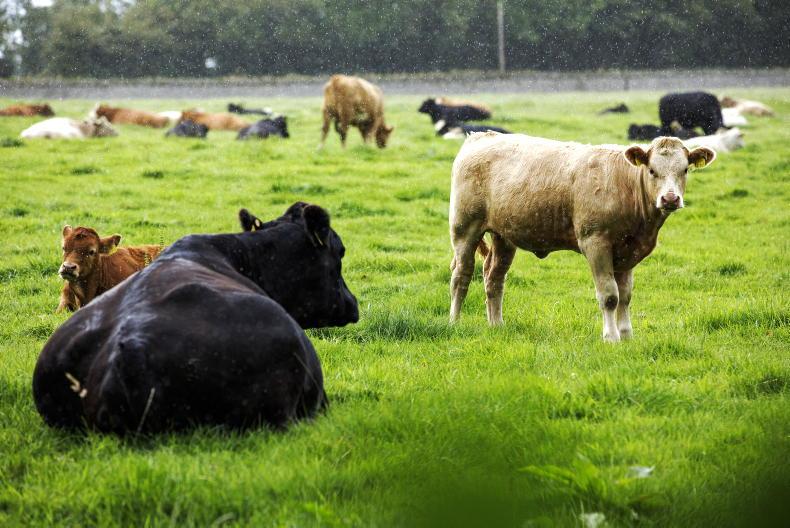DAERA has defended the requirements that NI farmers will have to meet to avail of the proposed headage payments for suckler cows and finished cattle.
To claim payments under the suckler cow measure, it is proposed that farmers will have to reduce both the age at first calving and the time interval between calvings.
Likewise, lowering the age at slaughter is a condition of the beef transformation measure.
Speaking at an online event, senior DAERA official Norman Fulton said strings were attached to the schemes to help improve productivity and lower greenhouse gas emissions in the beef sector.
We certainly want to avoid any possibility that, at some point in the future, we have to reduce breeding livestock
“It is important that we start to reduce the age of calving and age of slaughter, because that will make a lasting contribution towards reducing the carbon footprint of the overall industry,” Fulton said.
“We certainly want to avoid any possibility that, at some point in the future, we have to reduce breeding livestock [numbers]. If we can improve our productivity, it creates a bit of space for us,” he added.
While the exact requirements for the two headage payments could be amended over the coming months, Fulton made it clear that the aim is to drive change on suckler and beef farms.
“It’s not about adjusting the schemes to fit in with the current production practices. It is about changing current production practices to deliver what we need to deliver as an industry,” he said.
It is proposed that quotas will apply to the suckler cow measure which will be based on a historic reference period for each herd.
This aims to stop farmers from keeping more livestock and increasing stocking rates to avail of higher payments.
As I sit here today, no decision has been taken, other than it is in the past
“The historic period has passed. We are undertaking an exercise looking at whether it should be across a single year or multiple years.
“As I sit here today, no decision has been taken, other than it is in the past,” said Rosemary Agnew from DAERA.
Resilience payment
With the area-based resilience payment part of new farm support in NI, entitlements from the current basic payment scheme will be used to allocate new payments.
“The unit value of entitlements will change as we start to divert money away from the current basic payment scheme into agri environment and coupled support (headage) payments,” Fulton explained.
He also indicated that while some subtle changes to farm support may be introduced next year, it is likely to be 2024 before the new resilience payment and headage payments are rolled out in full.
“Our experience from previous reforms of the CAP has been after agreement on the policy, it generally takes two years to build a system to actually deliver it,” Fulton said.






 This is a subscriber-only article
This is a subscriber-only article











SHARING OPTIONS: